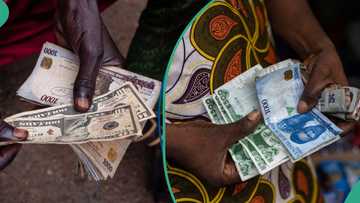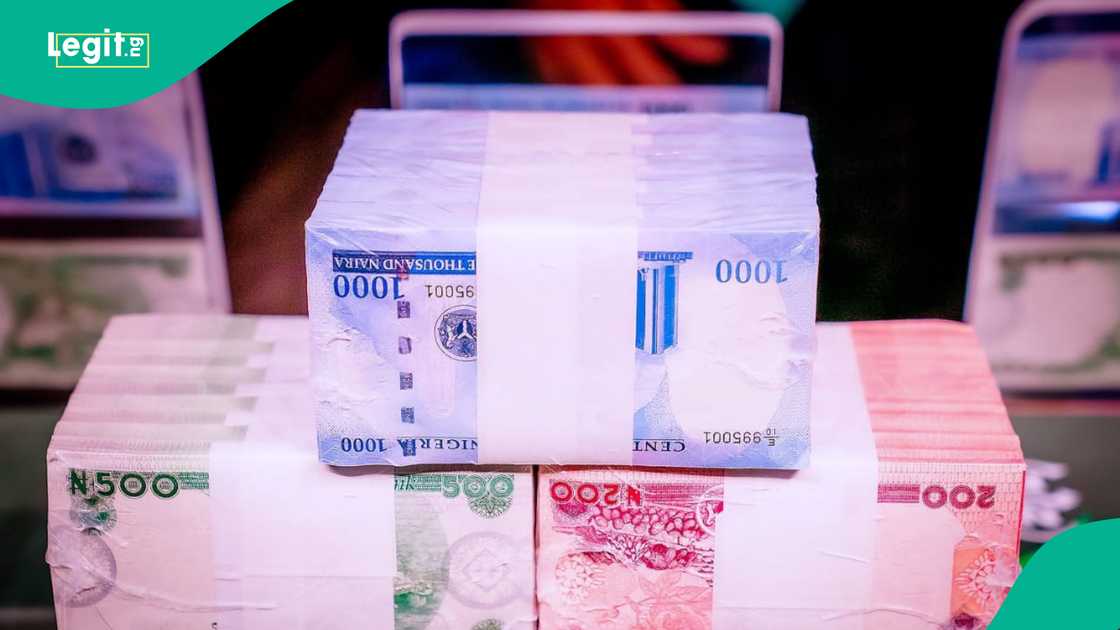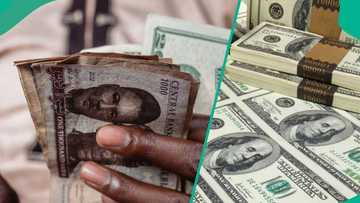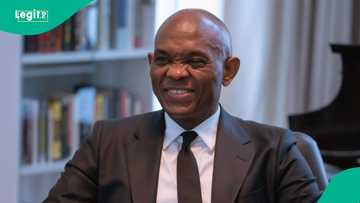Nigeria's Foreign Exchange Market Faces Volatility Despite Rising Corporate Inflows
- In July 2025, Nigeria saw a significant increase in foreign exchange inflows, with non-bank corporates investing over $1.2 billion, up from $800 million in June
- While foreign portfolio investments remained the largest source of supply, analysts warned that the reliance on short-term capital flows exposed the market to vulnerabilities
- Despite the increase in inflows, the naira weakened, reflecting the mismatch between demand and supply, and the FX market remains volatile without more reliable and long-term sources of capital
Legit.ng journalist Zainab Iwayemi has 5-year-experience covering the Economy, Technology, and Capital Market.
As the naira continued to be under pressure, foreign exchange (FX) inflows from non-bank corporates into Nigeria's FX market increased significantly in July, providing some respite to dollar liquidity.

Source: Getty Images
Corporates invested over $1.2 billion in the market in July 2025, up from $800 million in June, according to figures cited by FBNQuest Merchant Bank from FMDQ.
Market watchers pointed out that the increased inflows suggest corporate confidence in engaging through official windows rather than relying on parallel-market transactions.
The increase indicates stronger participation from private sector players, which analysts attribute to improved export receipts, particularly from upstream oil companies, repatriated earnings, and greater use of formal FX channels.
“Corporate inflows have become a more important component of the FX mix. Oil-linked revenues, coupled with efforts to formalise repatriated earnings, are helping to supplement portfolio investments, which remain volatile”, FBNQuest Merchant Bank said.
Overall foreign exchange inflows into Nigeria's market increased from $3.1 billion in June to $3.8 billion in July, a 24 percent month-over-month increase. Even with the recovery, inflows were still far less than the May peak of $6.7 billion, which was indicative of continued volatility in foreign exchange liquidity.
Foreign Portfolio Investments (FPIs) continued to dominate as the single largest source of supply, generating about 45 per cent of overall inflows. Attractive carry-trade opportunities and generally steady global macroeconomic conditions helped offshore investors place $1.7 billion into the market, up from $1.5 billion in June.
However, the reliance on short-term capital flows shows Nigeria’s structural vulnerability.
FPIs are extremely vulnerable to swings in interest rates and the global demand for risk.Since they can depart as fast as they arrive, the boost they offer must be balanced with more reliable FX sources.
In July, the Central Bank of Nigeria (CBN) increased its market presence by selling $326 million, up from $183 million the month before. The increase demonstrates the regulator's resolve to stabilize the naira and balance supply and demand.
Analysts at FBNQuest suggest that the CBN’s interventions were facilitated by a relatively stronger reserves position, giving the bank more room to provide liquidity. Nevertheless, the naira ended the month weaker as a result of the interventions' failure to counteract market pressures.
Notwithstanding the increase in inflows and CBN assistance, the naira fell 0.13 percent month over month to close July at N1,534/$1. The exchange rate was still impacted by the ongoing demand for dollars, especially from importers and investors protecting themselves from currency risk.

Read also
GTBank, Access Bank release updated dollar, pound, euro exchange rates for international payment
“The naira’s performance reflects the mismatch between demand and supply,” a treasury executive at a Tier-1 bank said. “Even though inflows rose in July, they are not yet at levels that can sustain a stronger recovery.”
According to the bank's report, it anticipates that both domestic and international factors will continue to influence FX inflows in the future.
“Sustained oil exports and improved private sector participation could support liquidity, but risks remain elevated due to global monetary policy shifts and uncertainties in Nigeria’s macroeconomic environment.

Source: Getty Images
Although foreign exchange inflows are increasing, the market remains vulnerable due to the supply structure. The Nigerian FX market would continue to be volatile unless more significant changes are implemented to draw in longer-term capital and diversify FX sources. It said.
The increase in corporate inflows provides a buffer for the time being. However, July's recovery might be brittle in the absence of stronger fundamentals because Nigeria's currency is still under pressure and its reliance on foreign portfolio inflows is still present.
FG unveils forex training opportunity
Legit.ng reported that the Federal Government of Nigeria has signed a Memorandum of Understanding (MoU) with Investonaire Academy to train 100,000 young Nigerians annually in foreign exchange trading.
This initiative aims to tackle unemployment and promote financial inclusion across the country.
The agreement, sealed on Monday in Abuja, was announced in a statement released on June 10 by the Federal Ministry of Youth Development’s Director of Information and Public Relations, Omolara Esan.
Proofreading by James Ojo, copy editor at Legit.ng.
Source: Legit.ng




